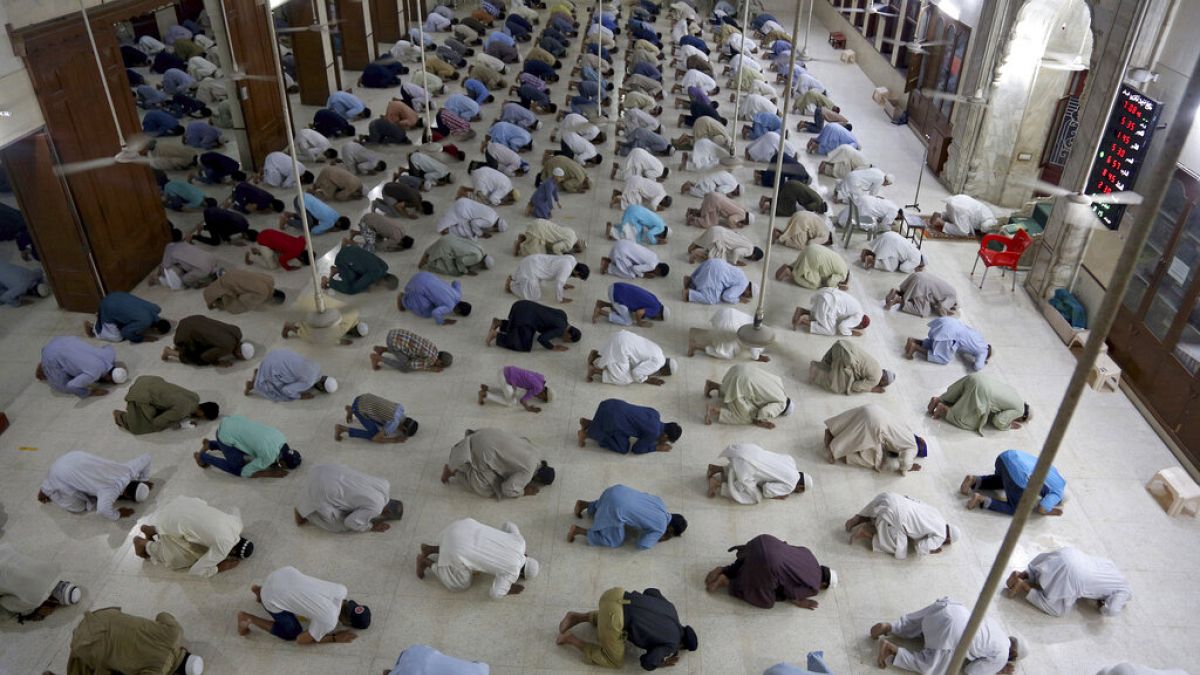Coronavirus containment measures mean many Muslims will turn to videoconference tools to connect with their loved ones as they break their daily fast.
The holiest month on the Islamic calendar is about to start, but coronavirus containment measures mean many Muslims will have to adapt their traditions to life under lockdown: Families, mosques and governments around the world have been preparing to take Ramadan online.
Breaking the fast as a family is an important tradition during Ramadan and Muslims are now planning virtual Iftars (the evening meals with which they break their daily fast) and Suhoors (the early morning meals they have before fasting) using videoconference tools.
The Ramadan Tent Project, which has in recent years held giant Iftar events across London – bringing together hundreds of people in iconic locations such as Trafalgar Square, Westminster Abbey and Wembley Stadium – is now organising "Open Iftars" online to keep the tradition alive despite the context.
"We use Ramadan and the Iftar meal to bring communities together to better understand each other. And what we’ve found is that now more than ever there’s a bigger need for that spiritual, social and human connection," the charity's head of operations Amad Afzal told Euronews.
Online Iftars with a theme
Zainab Gulamali, spokeswoman for the Muslim Council of Britain, praised organisations for stepping up to the challenge and helping people make the most of Ramadan whilst under lockdown.
"There has been a real drive across the world, particularly spiritually, within mosques and Islamic centres, to make sure that they put as many of their services online as possible," Gulamali told Euronews.
"And because everyone is doing this, you can be in London and tune in to a speaker that you really like in the US for example, and people across the world are able to access more religious services than ever before."
Gulamali said people were being creative and setting up online Iftars on a variety of subjects.
"There will be people sitting around the laptop on Zoom breaking their fast together and then having a discussion about different things – from sustainability to writing groups, having Iftars whilst doing some work – and also lots of games and sessions organised for children, who would usually be spending time in the mosque together," she said.
Looking after your health during Ramadan
The Muslim Council of Britain (MCB) suggests preparing menus in advance to limit shopping trips and avoid contact with others.
Fasting under these conditions has also raised concerns in many communities. The World Health Organization has recommended that COVID-19 patients consider not fasting and the Muslim Council for Britain has issued special guidance.
"Healthcare workers wearing PPE (personal protective equipment) or doing long shifts can be at real risk of dehydration or making clinical errors because of this, so they're exempt from fasting because this could impact on their health or the health of others," Gulamali told Euronews.
"Similarly, those who are physically or mentally unwell are always exempt from fasting, and this year because of the pandemic it's important for those who are unwell to make sure they take the necessary precautions and don't fast."
'Quality over quantity'
For those who are fasting, the MCB advises people to drink lots of water during their workdays. It also recommends eating high energy, slow-burn foods for Suhoor (right before the start of their fast) to remain energised throughout the workday, "especially as we can experience heightened levels of anxiety during these times".
The Council also stresses the importance of looking after your mental health.
"Life can be full, and we try to fill it with more worship during Ramadan. We all want to pray more and this can help with anxiety but it is important to be good to yourself – sometimes it is quality over quantity".
